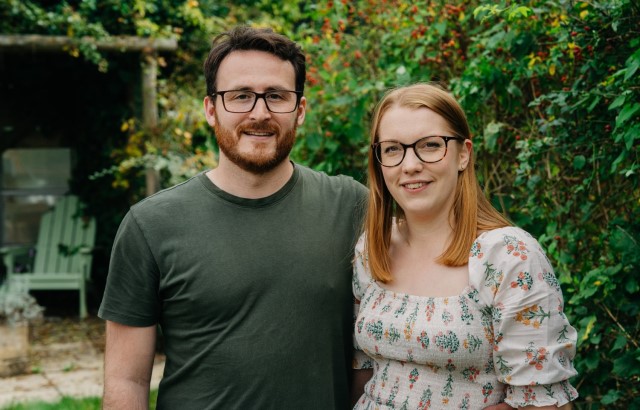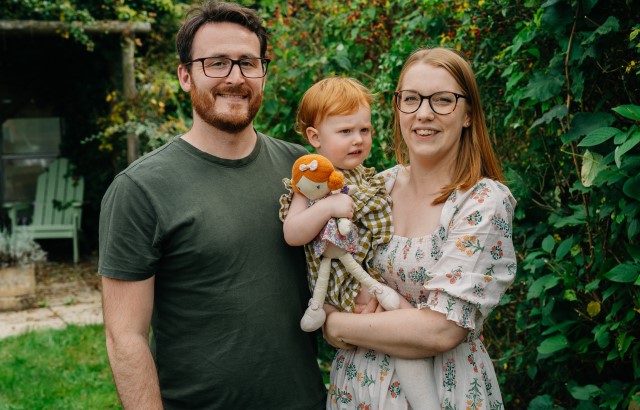
Fear of causing harm would prevent couples from giving lifesaving CPR



Around half of people (51 per cent) who live with their partner said the fear of causing harm would make them reluctant to give cardiopulmonary resuscitation (CPR) if someone had a cardiac arrest in front of them, according to new data released by us to mark Heart Month.

A YouGov survey commissioned by us also found that four in ten (43 per cent) people either married, in a civil partnership or living as married wouldn’t feel confident performing CPR if someone had an out-of-hospital cardiac arrest.
CPR to a loved one
With eight out of 10 cardiac arrests happening at home - meaning you’re more likely to have to give CPR to a loved one - we are urging couples to brush up on the lifesaving skills ahead of Valentine’s Day. We hope the findings will empower everyone to take action in the event of a cardiac arrest, as if CPR isn’t attempted, the person will die.
Despite over a fifth of those surveyed (22 per cent) saying they had seen someone have a cardiac arrest in front of them, almost a third (31 per cent) have still not received any CPR training.
And almost three-fifths (58 per cent) have never been trained in using a defibrillator, with a similar number (57 per cent) saying they would not feel confident using a defibrillator if someone had a cardiac arrest.
Lee and Krystalla’s story

Primary school teacher Krystalla Panayi-Davidson was fast asleep when she was woken up in the middle of the night in July 2021 by an almighty thud. Eight months pregnant at the time, Krystalla raced upstairs to find husband Lee collapsed on the bathroom floor.
The 36-year-old from Newton Abbott in Devon said: “I kept asking if he was ok but there was no answer and I knew there was something wrong. I tried to push the door and I couldn’t get in so I really started to panic.
“When I got in, Lee’s feet were up against the bathroom door and he was laying against the shower in a really contorted position and I knew something was really wrong.”
Krystalla realised Lee had stopped breathing, so she dialled 999 and began CPR. Thankfully, she was trained in the lifesaving procedure. The emergency call handler instructed her to keep going until the paramedics arrived.
Before he had a cardiac arrest, Lee was fit and healthy with no family history of heart problems. He required hospital treatment and was fitted with an implantable cardioverter defibrillator (ICD), a device that can correct abnormal heart rhythms. For Lee, it was the beginning of a long road to recovery – an opportunity he may never have had without CPR.
It was made even more poignant when daughter Martha arrived one month later.
Second chance of life

Lee, aged 39, said: “It took me the entire 16-day stay in hospital for me to actually understand what Krystalla had done to save my life. I don’t think anyone could have done what she did – especially at 35 weeks pregnant.
“I am so grateful to be here to be a dad to Martha. The most distressing thing was thinking that I could have left her without a dad before she was even born – and that I was so close to not meeting her.”
Krystalla added: “I take so many photos of Martha and Lee together, because I just think this is something I may never have seen. It’s just the little moments that make me emotional, like seeing Lee read or sing to Martha.
“CPR has given Lee a second chance of life by being able to see the birth of his daughter. I’d urge everyone to learn CPR because it could be your loved one who needs it.”
Everyone needs to know CPR
There are more than 30,000 out-of-hospital cardiac arrests in the UK each year, but sadly less than one in ten people survive. Early CPR and defibrillation can more than double the chances of survival.
Our free online tool RevivR teaches lifesaving CPR skills in 15 minutes, using just a mobile phone or tablet and a cushion.
Dr Charmaine Griffiths, our Chief Executive, said: “With most out-of-hospital cardiac arrests happening in our homes, we all need to be ready to give CPR to a loved one.
"No matter your relationship status, everyone needs to know CPR. Our Heart Month survey found that people’s fear of hurting someone could prevent them from giving CPR, which could be the difference between life and death. Doing something is always better than doing nothing and through RevivR, we’ve made it easier than ever to learn.
“It only takes 15 minutes to learn CPR, and could be the greatest gift you give to someone you love."

